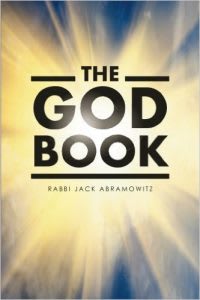2.14 Divine Inspiration and Prophecy
Sources refer to the Ramchal's Derech Hashem.
-----------------------------------------
The normal way for a person to acquire knowledge and gain understanding is through his intellect. He observes things and deduces their natures, which may not be readily apparent. But God created another, greater of learning and understanding: through enlightenment that He bestows upon a person who has been prepared to receive it. When someone receives such enlightenment, he understands it clearly and completely, without any confusion or ambiguity. This is called ruach hakodesh (Divine inspiration). [III, 3.1] Ruach hakodesh allows a person to understand things beyond a human’s natural ability to figure out, including future events and the secrets of the universe. [III, 3.2] Ruach hakodesh can vary widely in how and what it imparts to a person but one thing is always true: the recipient understands it clearly in its entirety.
It is possible that a concept can be implanted in a person’s mind so that he fully understands it but he is unaware of the Divine influence that placed it there. In such event, it feels like any other idea that might just pop into a person’s head. This is a lower form of enlightenment that is only broadly included in the category of ruach hakodesh. In a case of true ruach hakodesh, the recipient is aware of the Divine influence he experiences. [III, 3.3]
True prophecy, however, is even higher than ruach hakodesh. When a person achieves the level of prophecy, he can actually feel his attachment to God and he understands what it is with perfect clarity, as surely as he could identify a physical object using his five senses.
The main point of prophecy is achieving this bond with God; a corollary to that is the information that may (or may not) be revealed. When one does gain insight through prophecy, the knowledge is perfectly clear. While this aspect is the same as with ruach hakodesh, prophecy differs in other ways. [III, 3.4]
Prophecy can only be brought about via an intermediary. A person is incapable of connecting directly to God’s glory, so prophecy requires a “filter.” The prophet actually experiences God’s glory, he just happens to perceive it as if seen through a lens. The effect of this “lens” depends on the intermediary used to deliver a prophecy. As with a physical lens, it can make things appear nearer or farther. Similarly, some lenses are more transparent, while others might be frosted to varying degrees. [III, 3.5]
Prophecy differs significantly from ruach hakodesh in that prophecy physically overwhelms the recipient. The body cannot handle the experience, so the prophet starts to tremble all over and he feels as if he’s being turned inside-out. His physical senses stop operating in favor of the Divine input that he is receiving. The prophet’s soul receives enlightenment from the experience thanks to the spiritual tether to the Almighty; this is the highest possible connection a human can have to God. The impact of God’s glory on the prophet’s soul generates images within the recipient’s imagination but, unlike with dreams (in section 12), the imagination does not contribute anything of its own to the message. When a prophet regains his senses, he retains what he has learned clearly and in its entirety. [III, 3.6]
The God Book – now available from OU Press!

